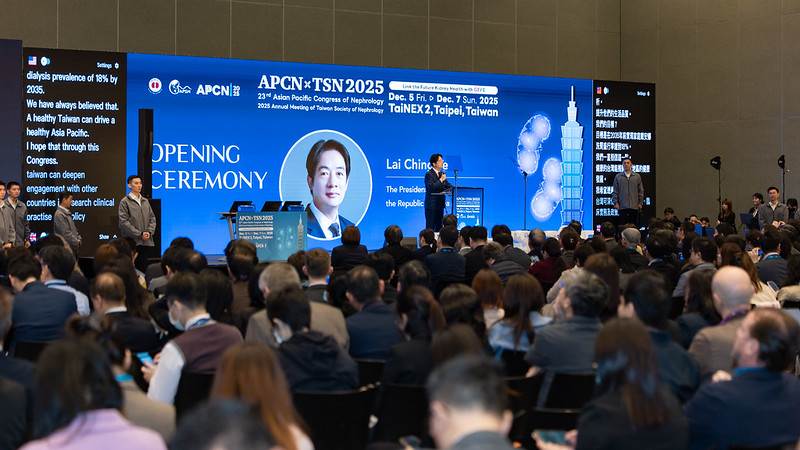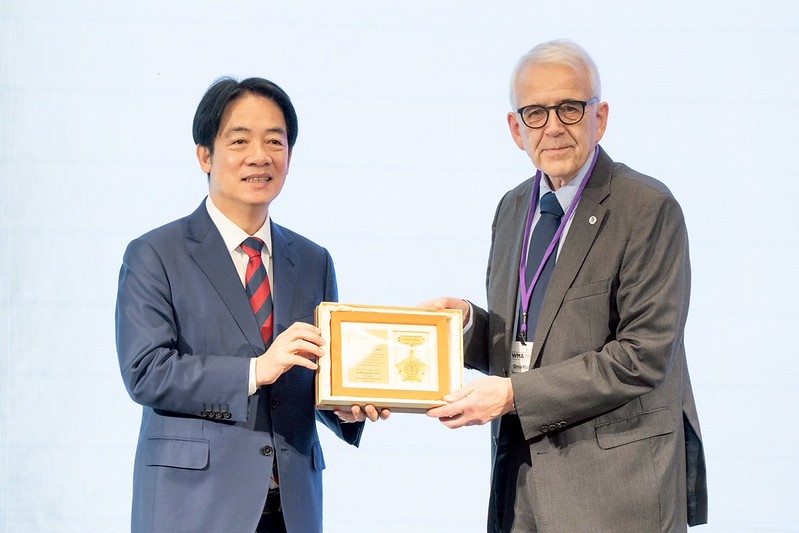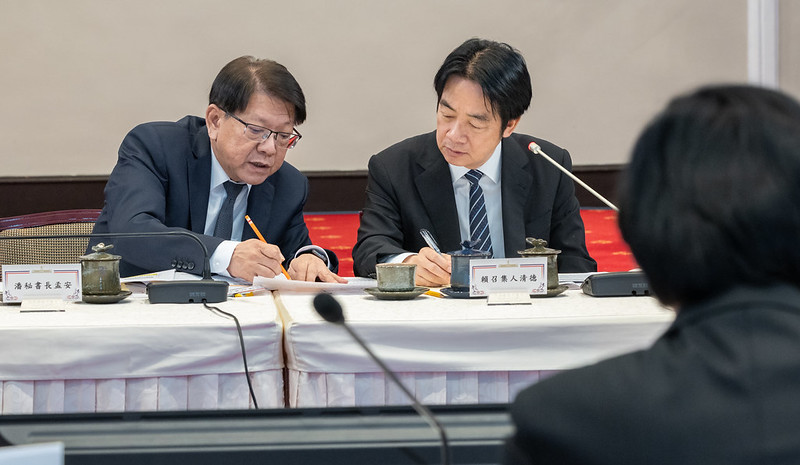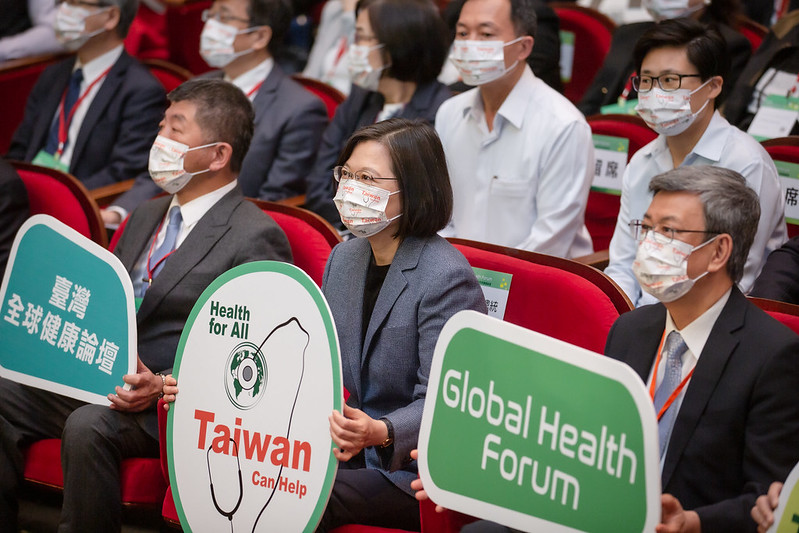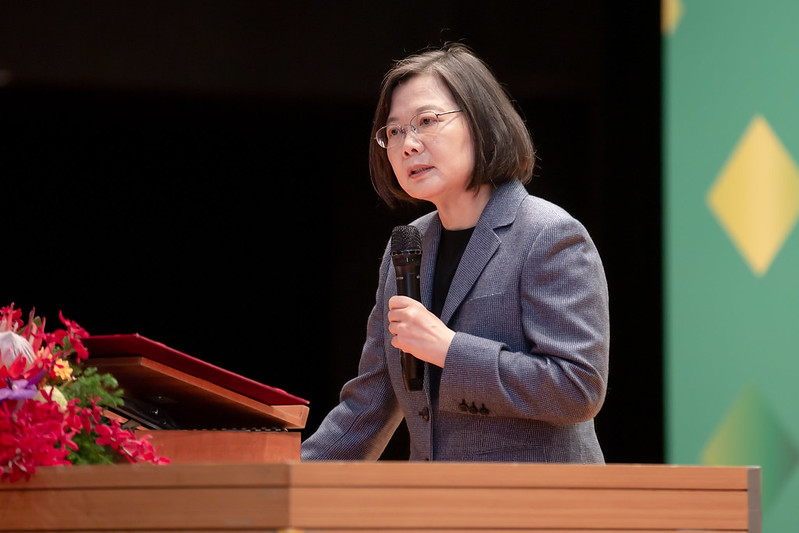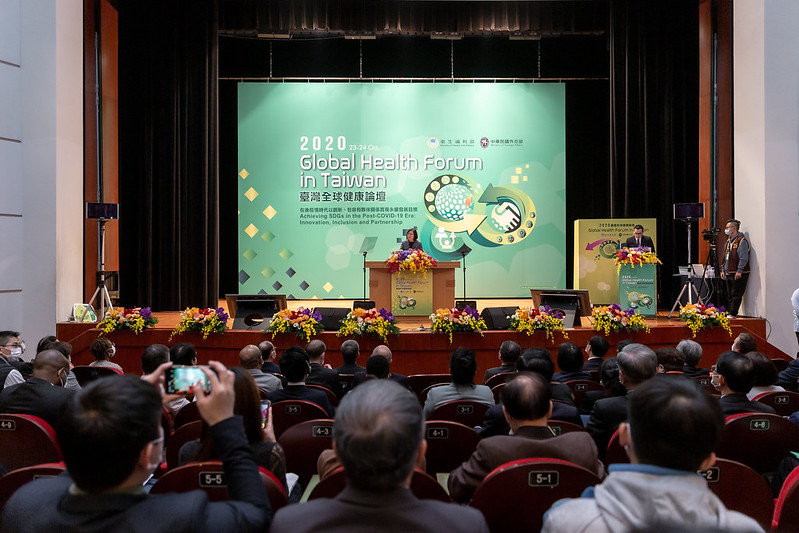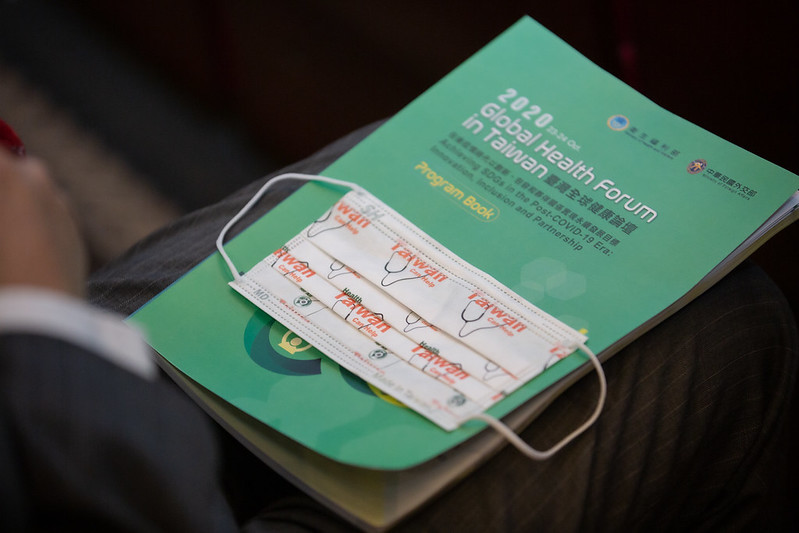News & activities
 News releases
News releases
While addressing the 2020 Global Health Forum in Taiwan on the morning of October 23, President Tsai Ing-wen shared Taiwan's success in preventing the spread of COVID-19. She emphasized that as part of the global public health community, Taiwan will continue to share our healthcare expertise with the international community. "Taiwan can help, and Taiwan is helping," the president said, and regardless of how daunting the challenges of the future may be, Taiwan will always actively cooperate with the international community, and work together to achieve global health for all.
A transcript of President Tsai's remarks follows:
I would like to begin by welcoming all the experts joining this year's Global Health Forum in Taiwan. I would also like to thank all the participants for your support for this important event. 2020 has been an unsettling year for the world. With all that has happened, 2020 will be marked in our memories as the year that the world faced the daunting challenge, that is the COVID-19 pandemic.
In the past ten months, as countries worldwide have found themselves tackling the difficulties brought on by the pandemic, Taiwan's steadfast model in combating the pandemic has been recognized by the world. Taiwan's experience with the SARS outbreak in 2003 served as the basis for the development of our comprehensive mechanism to prevent and combat future outbreaks. At the outset of the outbreak, Taiwan implemented a set of crucial measures. These critical measures included: onboard and home quarantine, early diagnosis and detection, application of social distancing, enforcement of facial mask wearing and the utilization of big data analysis and digital technology to combat the spread of the coronavirus.
After we took care of the needs of our health care professionals and our citizens, we also worked tirelessly to assist countries in need, particularly in three areas: facial masks, medicine and medical technology. We hope through collaboration, the international community can get through this difficult time together.
According to the Bloomberg Economics' ranking based on the performance in response to the threat of COVID-19 in July, Taiwan ranked first among the 75 economies on the list. This is the result of hard work from our government officers, and the collaboration of all our citizens with the government's pandemic prevention policies.
And, as our National Health Insurance (NHI) program entered its 25th year of implementation, it has laid a solid foundation for epidemic prevention. For example, through the NHI's massive data base, we are able to track and account an individual's contact and travel history, and then effectively prevent the spread of the virus. In addition, using the information from the data base, we can also confirm the identity of an individual and make the purchasing of facial masks efficient for our citizens.
More importantly, three manufacturers were approved for the phase one clinical trials of COVID-19 vaccines in Taiwan. My government will work even more diligently to provide consultation for those companies to accelerate the development of the vaccine, as we move into the fall and winter seasons.
Other than pandemic challenges, Taiwan is also a society with an aging population. It is estimated that by 2025, Taiwan will become a "super-aged society". That means, 20% of the population will be seniors above the age of 65. Therefore, in order to meet the needs of the aging population, we have actually implemented the Long-Term Care Plan 2.0 in 2017.
This plan expands the number of people covered, and also increases the number of long-term care service items. We are building a community-based long-term care system, and will continue to diversify services, from home care to institutions providing residential care. Currently, coverage for long-term care services of all types is over 51%.
As part of the global public health community, Taiwan is actively pursuing a transnational epidemic prevention network and obtaining healthcare collaboration with our New Southbound Policy partner countries. It is our hope to deepen our ties and cooperation with medical industries in the Indo-Pacific region. Taiwan is also capable and willing to contribute in the global endeavor of pandemic prevention.
At the first APEC Health Working Group Meeting this February in Malaysia, Taiwan proposed the establishment of the Digital Health Sub-working Group and became the leading economy for this group. And, through our expertise in the digital industries, we can assist with improving the health for all. We also believe, Taiwan's participation in the World Health Organization (WHO) is essential in the world's effort to prevent and combat diseases and pandemics.
I would also like to once again thank our friends and partner countries with shared-values for their advocacy for Taiwan's participation in international organizations such as the WHO. Taiwan, as a major transfer hub and destination in the Indo-Pacific region, stands in a geographically important place and should play a principal role in disease prevention. The political pressure from one particular country should not be a legitimate reason to disrupt the global effort in pandemic prevention.
In the future, Taiwan will continue to share our expertise in medical services and healthcare with the international community. Being able to maintain one's health is a matter of basic human rights, and "Taiwan can help, and Taiwan is helping". The COVID-19 pandemic allowed us to witness the fragility of human health and to understand the importance of global collaboration in the field of public health. There is a possibility that we will face yet another outbreak. But, regardless of how daunting the future challenges are, Taiwan will always work proactively with the international community to achieve global health for all.
